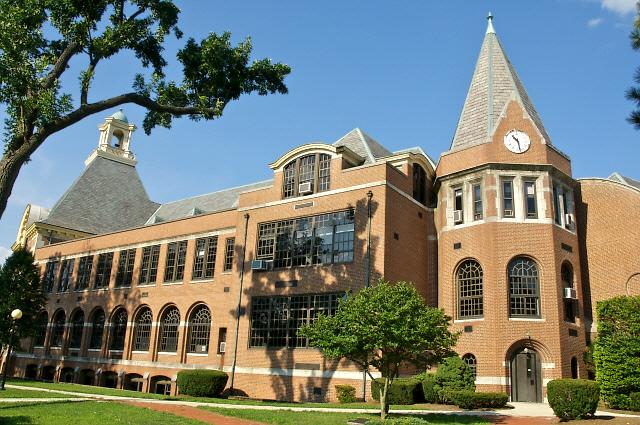Reprinted from the Asbury Park Press:
TRENTON — Gov. Chris Christie's cuts-driven state budget proposal set off alarms in many government and political circles, perhaps none louder than the impact of a planned $820 million reduction in financial aid to local school districts.
That emerged as the lead focal point for a multitude of reasons, including the strong connection between school budgets and local property taxes, the enormity of the money at stake and Christie's weeks-long rhetorical war aimed at the teachers' union.
There's also this factor: It's one of the first ways that the real-world impact of Christie's budget plan will be measured, as school districts putting their tax levies before voters on April 20 have until Monday to submit budget plans to the state.
That impact is likely to be sharp. In addition to pink slips for teachers and other employees, some of that cut — plus some of the $445 million being sliced from funding for towns and cities — is likely to show up in property tax bills, given that the state's 4 percent cap on property tax growth exempts losses in state aid.
Christie wants to remove that exemption, as part of a harder 2.5 percent limit on property tax increases he wants approved by the Legislature in the short term and by voters via constitutional amendment in November. But that's not coming in time to alter this year's school budgets, says New Jersey School Boards Association executive director Marie Bilik, who said property tax hikes as high as 10 percent are possible.
"I agree with the governor's theory, I absolutely do. Phasing in the 2.5, controlling the cost of government — it's the only way we are going to survive. But you can't do it three days before the budget's due and expect to maintain high-quality education," Bilik said. "The boards are faced with challenges and decisions like they've never been faced with before."
Michael Kaelber, legal and policy services director for the NJSBA, said the state's property tax cap provides a dollar-for-dollar increase in the cap for every dollar lost in state aid. A district that loses $1 million in aid can raise its levy by $1 million, plus 4 percent, and remain within the legal limits.
"Now, whether that goes to the voters or not, if the election proceeds, there's at least two factors that control that," Kaelber said. "One is the county superintendent review of the budget, because the county super's going to approve what the district has submitted. And where he sees inefficiencies or she sees inefficiencies, they'll make the appropriate changes to that and recommendations to the district."
Executive county superintendents are state officials, part of the Christie administration.
The second factor, Kaelber said, is whether districts choose to pass along the increase.
"Each local board right now is struggling with, "Can we pass any of this on to taxpayers in our community in this difficult economic time?' And if there's a decision made that that's just not economically feasible in their community, now you're back to looking at programs and jobs and things of that nature," he said.
The Christie administration counters that teacher layoffs shouldn't be a given. Although preparations for layoffs will probably be needed, says the state Department of Education in a memo, long-time employees with richer compensation packages will retire if arbitration reforms, health-benefit cost-sharing and pension changes are enacted.
"Because the governor has proposed an Aug. 1 effective date for severalof his reforms, many school district employees nearing retirement will likely choose toleave this year so that they can enjoy free health care benefits and richer pensionbenefits for the rest of their lives," says the DOE's memo.
"If the governor's full program is eliminated, then I don't think you'll see any layoffs," said Education Commissioner Bret Schundler. "You would see instead some early retirements. But at the end of the day, you'd see districts best able to weather the very dramatic reduction in federal aid that they'll be receiving this year."
Schundler was referring to the state's use of more than $1 billion in federal stimulus funding to offset school aid in the current budget year, none of which is available for next school year.
Bilik said the teacher exodus is a viable possibility but worried districts would lose credibility with local residents if they issued layoff notices, saw a defeated budget reduced further, then withdrew pink slips after teachers retired. "What would the taxpayers think? "That school board again lied to us."
Welcome!
Welcome to Laurie Goodman's blog. I use this space to share news and opinions about education and schools in Ridgewood, the state of New Jersey and the nation, in addition to other issues I'm personally interested in. I invite you to share your thoughts, feelings, questions or opinions, too, by posting comments on any blog entry. Please observe basic courtesy -- keep your comments focused on issues, no personal attacks or bullying, please. Contact me directly at: lauriegood@mac.com
Monday, March 22, 2010
Subscribe to:
Post Comments (Atom)





No comments:
Post a Comment